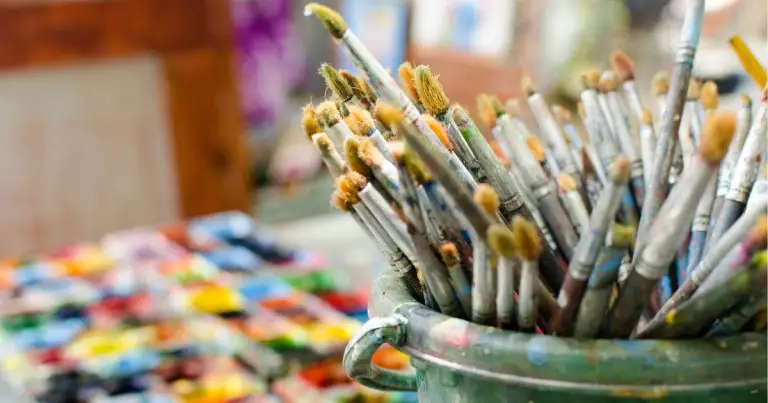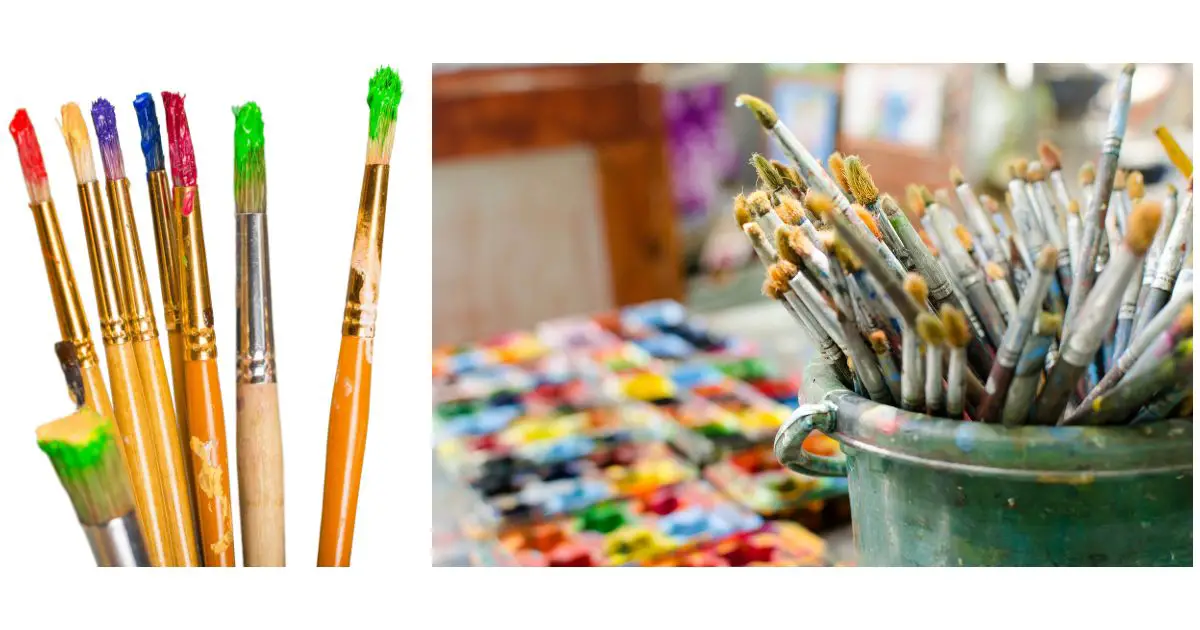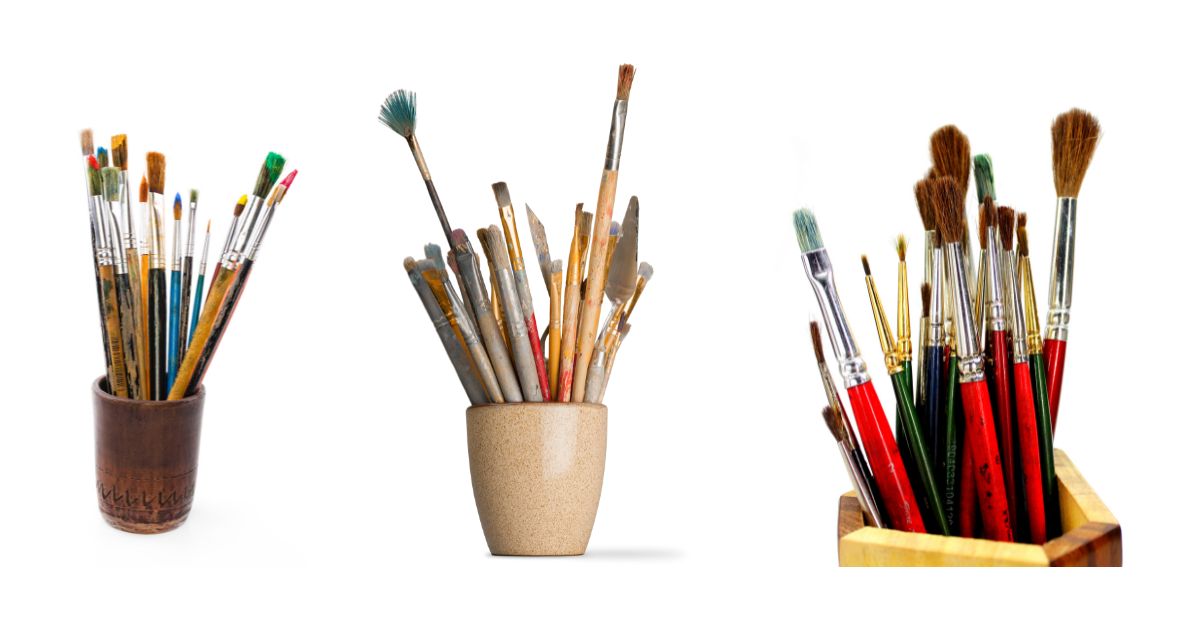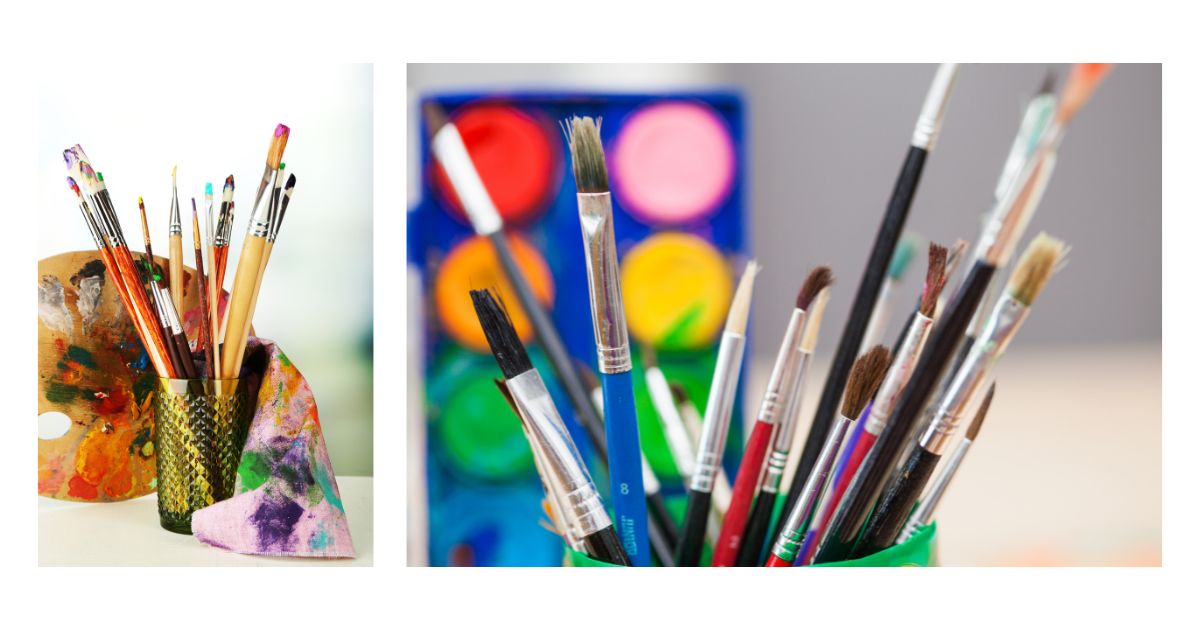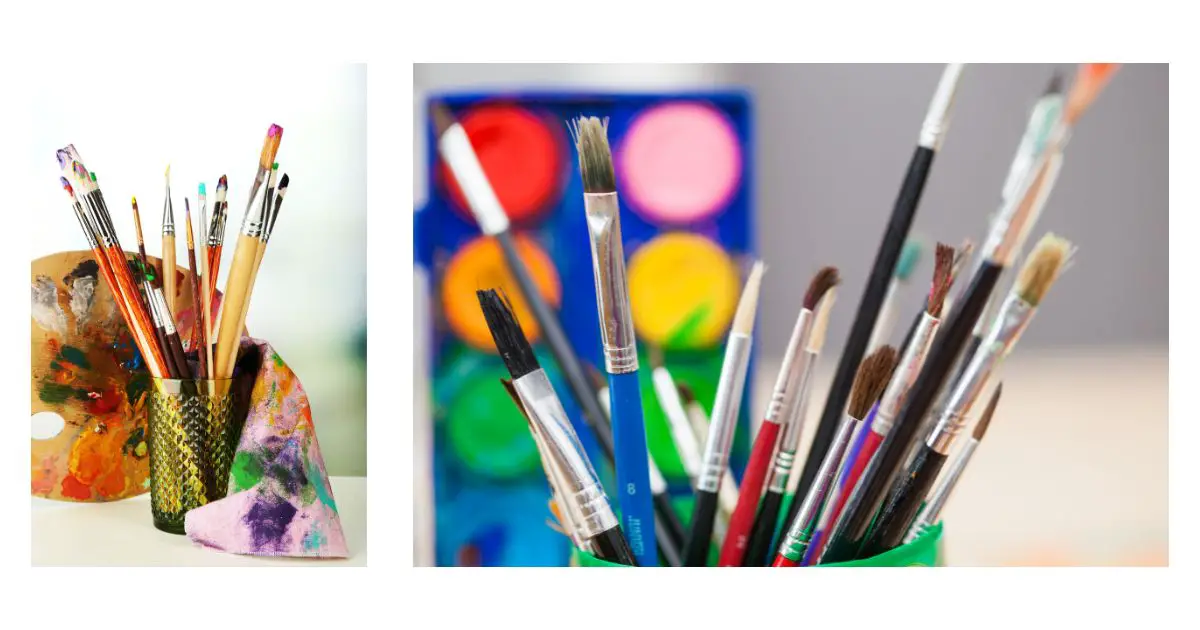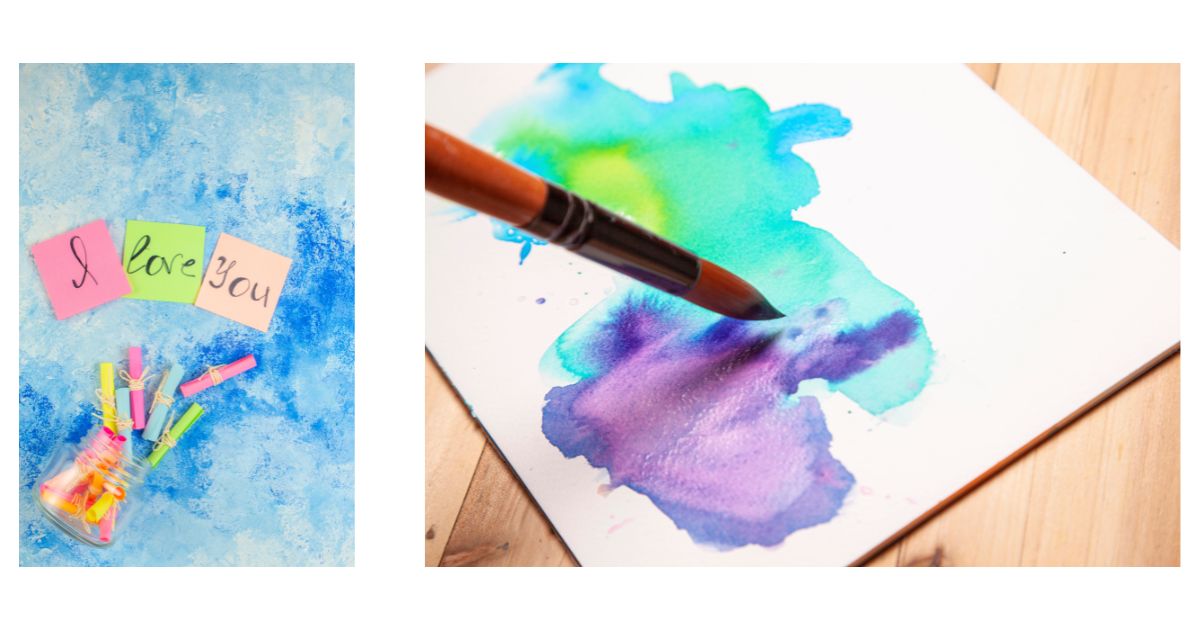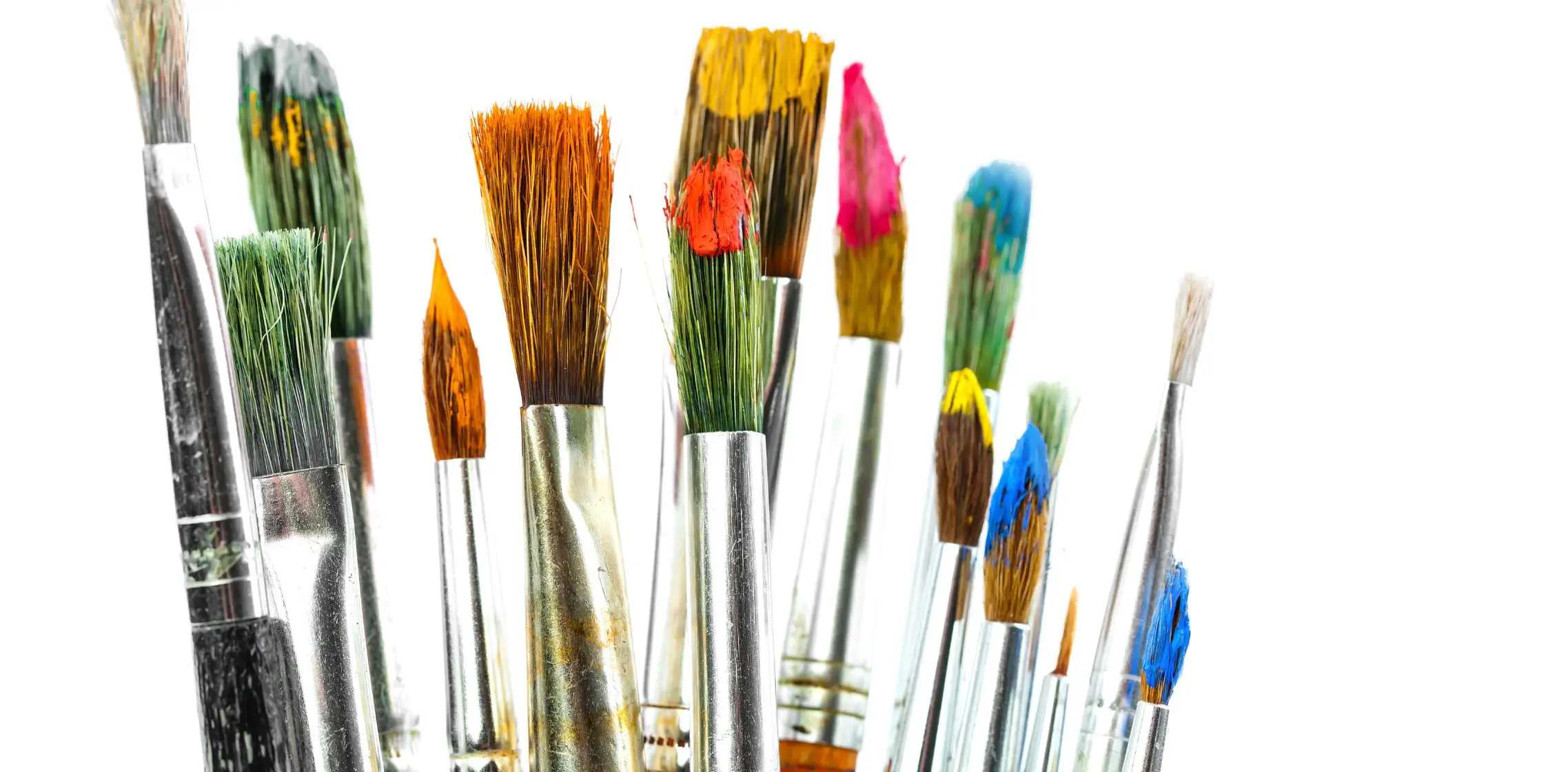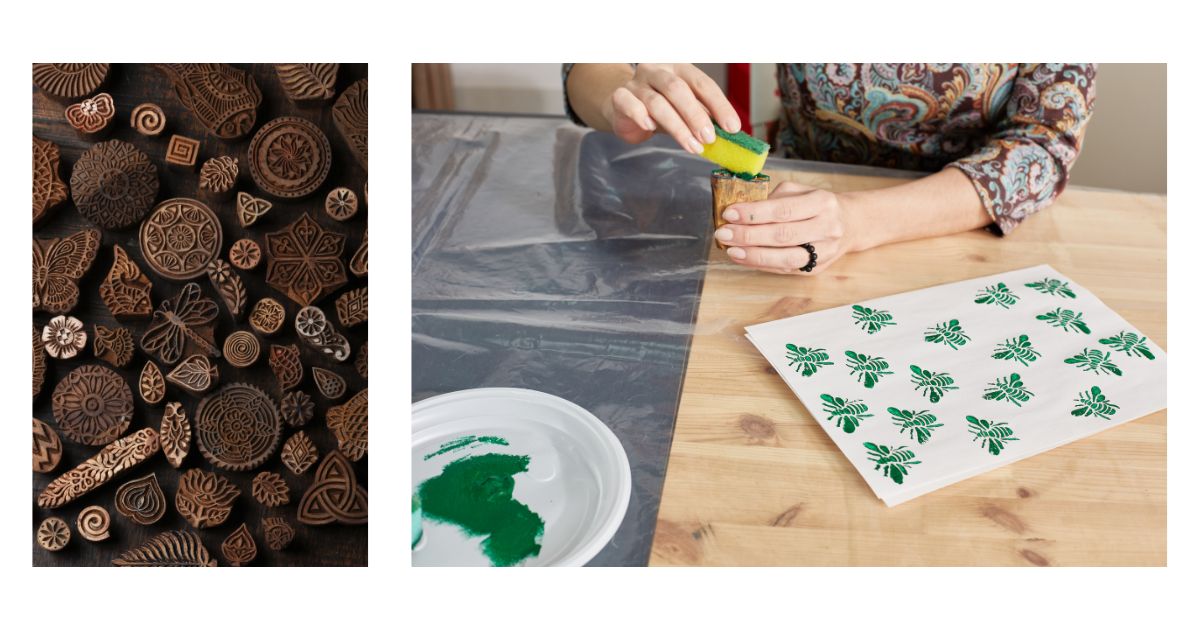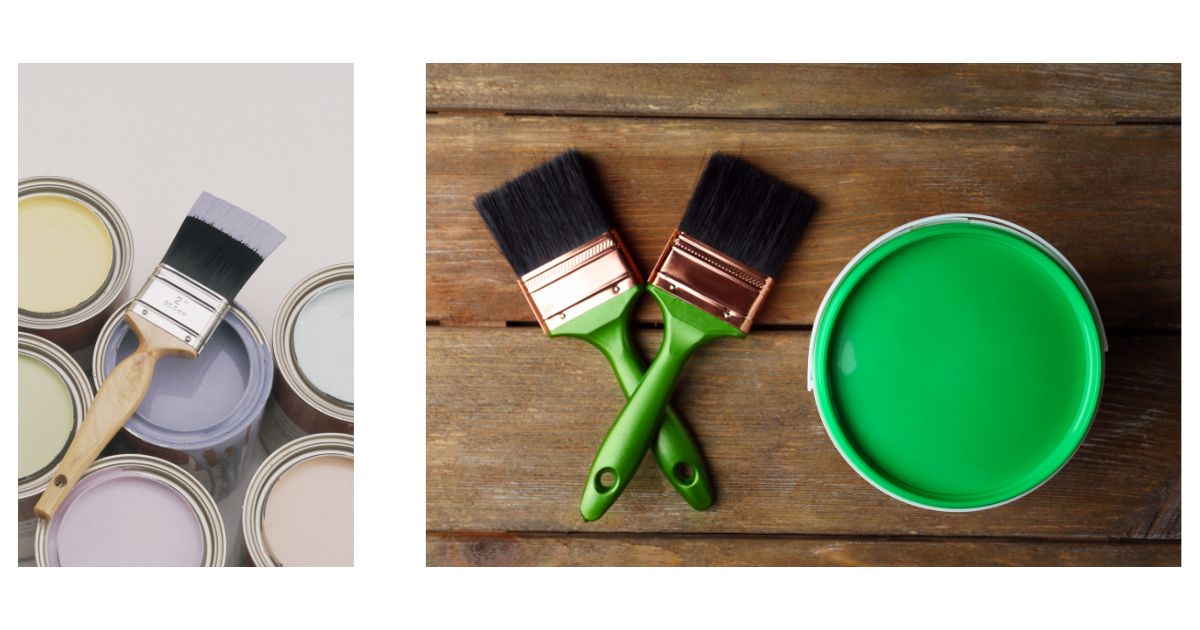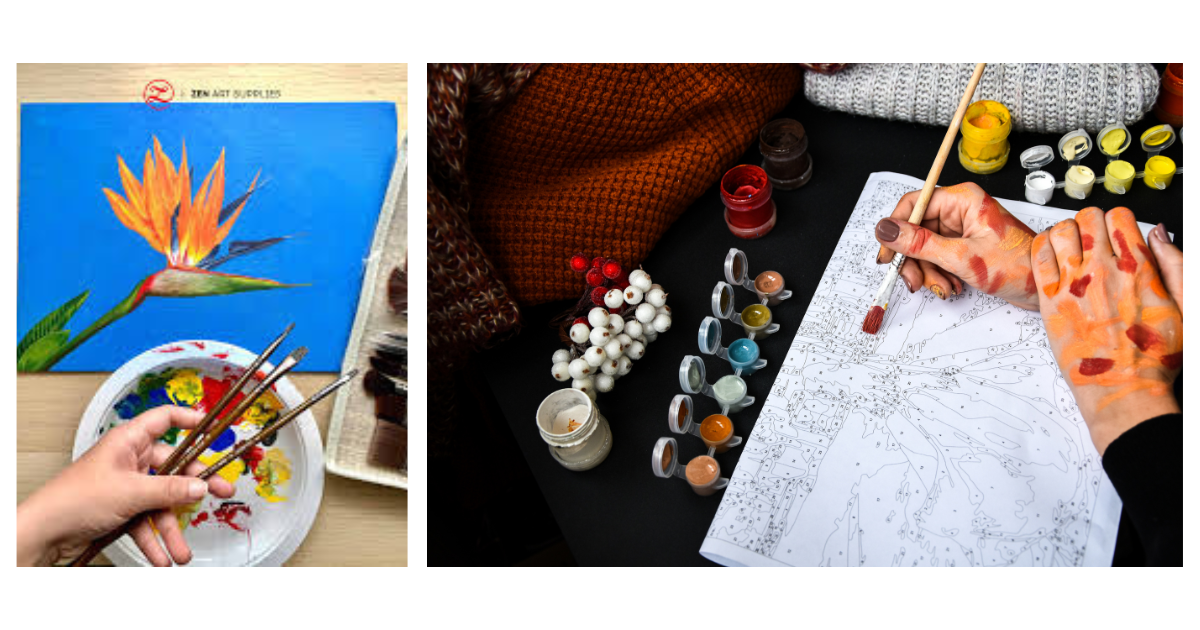To clean acrylic paint brushes between colors, use a brush cleaner or soap and water. Rinse the brush in the cleaner or water, then blot it on a paper towel to remove any excess liquid. Repeat this process until the brush is clean.
- Rinse your brush with water to remove any excess paint
- Load your brush with a colorless soap or detergent and work it into the bristles
- Rinse the brush again with water and repeat steps 2-3 until the water runs clear when rinsing
- Gently squeeze the bristles of the brush to remove any remaining water and soap before allowing it to air dry
Acrylic painting tips: how to clean your acrylic paintbrush
How Do You Clean Paintbrushes between Colors?
It’s important to clean your paintbrushes between colors to avoid muddying the shades and ruining your work. Here’s how to do it:
- Run the brush under water, using either a sink or a cup.
- Swirl the bristles around in soap or shampoo, then rinse thoroughly. You can also use a brush cleaner if you have one on hand.
- Use your fingers to gently massage the bristles, working out any remaining color pigment.
- Rinse again until the water runs clear, then towel dry or air dry before using the brush with another color.
Can I Use the Same Paint Brush for Different Colors?
If you’re planning on using more than one color of paint during your painting project, you may be wondering if it’s okay to use the same paintbrush for different colors. The good news is that you can indeed use the same brush for different colors – as long as you take a few precautions first. Before you start painting, it’s important to prepare your brushes properly.
First, make sure they are clean and free of any dirt or debris. Next, wet the bristles with water (if using water-based paint) or mineral spirits (if using oil-based paint). This will help to prevent the bristles from absorbing too much paint and becoming stiff.
Once your brushes are ready, dip them into the first color of paint and apply them to your surface according to your chosen design. When you’re finished with that color, wipe off any excess paint from the brush before dipping it into the second color. It’s also a good idea to rinse out your brush between colors, just to be safe.
With a little care and preparation, you can definitely use the same brush for different colors – just make sure to clean it thoroughly between each use!
Is It Ok to Clean Acrylic Paint Brushes in the Sink?
Assuming you’re talking about cleaning brushes used for painting with acrylic paint: Yes, it is perfectly fine to clean your brushes in the sink. In fact, that’s probably the easiest way to do it.
Just run some warm water over them and use your fingers or a brush comb to get any dried paint out. If you need to, you can also use a mild soap. Once they’re clean, just leave them to dry on a towel or rack.
What Liquid Is Used to Remove Acrylic Paint from Brushes?
Assuming you are asking what type of liquid is best used to remove acrylic paint from brushes, the answer would be water. Water will break down the paint and allow it to be removed from the bristles easily. You can also use a mild soap if needed.
How to Clean Dried Acrylic Paint off Brushes
Acrylic paint is a water-based paint, so it is relatively easy to clean up. However, if the paint has dried on your brushes, you will need to use a little elbow grease to get them cleaned again. Here are some tips on how to clean dried acrylic paint off brushes:
- First, soak the bristles of the brush in warm water for a few minutes. This will help loosen up the dried paint.
- Next, use a brush cleaner or soap and water to lather up the bristles, and then rinse thoroughly.
- If there is still some dried paint remaining, you can try using white vinegar or nail polish remover (acetone). Soak a cotton ball in either of these solutions and then rub it over the bristles of the brush until the dried paint comes off. Rinse well with soap and water afterward.
How to Clean Acrylic Paint Brushes With Vinegar
Acrylic paint brushes can be cleaned with vinegar for a quick and easy clean-up. All you need is white vinegar and a cup or bowl. Simply pour the vinegar into the cup or bowl and submerge the brush in it.
Let the brush soak for a few minutes, then remove it and rinse it under running water. The bristles will be clean and free of any dried paint.
Clean Acrylic Paint off Brushes
Assuming you are talking about cleaning paintbrushes after using them with acrylic paint, here are some tips:
- Use a brush cleaner or soap and water immediately after use. If the paint has dried on the brush, you will need to use a solvent such as rubbing alcohol or acetone.
- Never soak your brushes in water or solvent for more than a few minutes, as this can damage the bristles.
- Gently scrub the bristles with a brush comb or your fingers to remove any remaining paint. Rinse well with clean water.
Conclusion
Cleaning your paint brushes between colors is important to maintain their quality and longevity. There are a few different ways you can clean your acrylic paint brushes, depending on the level of cleaning needed. The first way to clean your paintbrushes is with soap and water.
This will remove any dried paint from the bristles and should be done after each painting session. If you need to deep clean your brushes, you can use a brush cleaner or white vinegar. Soak the bristles in the solution for a few minutes, then rinse thoroughly with water.
Once your brushes are clean, make sure to dry them completely before storing them away. Doing this will help prevent them from getting damaged or developing mold or mildew.

